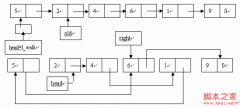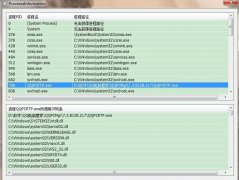Macro Definitions of Functions
If we describe something as a function in this manual, it may have a macro
definition as well. This normally has no effect on how your program runs--the
macro definition does the same thing as the function would. In particular, macro
equivalents for library functions evaluate arguments exactly once, in the same
way that a function call would. The main reason for these macro definitions is
that sometimes they can prodUCe an inline eXPansion that is considerably faster
than an actual function call.
Taking the address of a library function works even if it is also defined as a macro. This is because, in this context, the name of the function isn't followed by the left parenthesis that is syntactically necessary to recognize a macro call.
You might occasionally want to avoid using the macro definition of a function--perhaps to make your program easier to debug. There are two ways you can do this:
You can avoid a macro definition in a specific use by enclosing the name of the function in parentheses. This works because the name of the function doesn't appear in a syntactic context where it is recognizable as a macro call.
You can suppress any macro definition for a whole source file by using the `#undef' preprocessor directive, unless otherwise stated explicitly in the description of that facility.
For example, suppose the header file `stdlib.h' declares a function named abs with
extern int abs (int);
and also provides a macro definition for abs. Then, in:
#include
int f (int *i) { return (abs (++*i)); }
the reference to abs might refer to either a macro or a function. On the other hand, in each of the following examples the reference is to a function and not a macro.
#include
int g (int *i) { return ((abs)(++*i)); }
#undef abs
int h (int *i) { return (abs (++*i)); }
Since macro definitions that double for a function behave in exactly the same way as the actual function version, there is usually no need for any of these methods. In fact, removing macro definitions usually just makes your program slower.
- 上一篇:linux内核模块和驱动程序的编写(2)
- 下一篇:LINUX C语言开发之2





